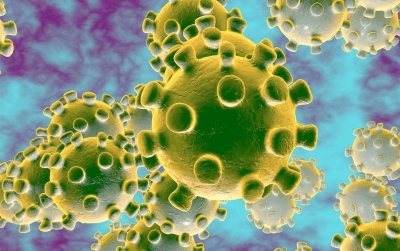New Delhi, May 30 (IANS) At 29.56 per cent occupancy rate, the Delhi government hospitals are housing fewer Covid-19 patients than private hospitals in the national capital.
While two Delhi government hospitals have 2,500 Covid beds, eight private hospitals offer 709 beds, as per the Delhi Health Department data accessed by IANS.
As of Friday only 739 Delhi government hospital beds were occupied, against 563 in the private hospital, recording the occupancy rate of 79.4 per cent.
Two Delhi government hospitals — Lok Nayak Hospital (2,000 beds) and Rajiv Gandhi Super Specialty Hospital (500 beds) — are fully Covid dedicated. While 607 beds of the Lok Nayak Hospital were occupied till Friday, in the Rajiv Gandhi Super Specialty Hospital it was 132.
Talking to IANS, J.C. Passey, former Medical Director of the Lok Nayak Hospital, said people were shying away from the government hospitals due to prejudice.
“One of the reasons for low occupancy is change in the guidelines. Those with mild or no symptoms are being allowed home quarantine, if they have the facilities. In the initial days of the outbreak, everyone was being shifted to hospitals the moment they were found having the virus,” Passey said.
On May 13, Suresh Kumar was appointed Medical Director of the Lok Nayak Hospital, replacing Passey. Kumar tested Covid-19 positive on Saturday.
Passey said by April, there were three levels of facilities for those having no symptoms, mild symptoms or critical patients — covid care centres (CCC), dedicated health centre and dedicated hospitals, respectively.
“As per the fresh guidelines, most positive cases are allowed home-stay as they have no or mild symptoms. People can get better comfort at home and so most are opting for that,” he said and added, several patients preferred hospital.
Also, those who could afford private hospitals went for that, he said. “People are looking for better comfort and they believed private hospitals could offer that.”
As the government had allowed private hospitals be attached with hotels, he said, “You can see (in coming days) more people opting for hotels and private hospitals.”
On Friday, one luxury hotel each was associated with five private hospitals to ensure sufficient beds. Ten hotels have also been allowed to offer paid isolation to those eligible for home-stay.
On prejudice, Passey said people had different mindset for government and private hospitals. “People should give a chance to the government hospitals to know that they are no less than private hospitals. At least, I can say this about my hospital,” he said.
“We are providing all the facilities and treating people as guests and not patients. Soon after the outbreak, I realised those coming are not actually patients. They needed more care, talk and counselling. They needed better food and communication system, rather than medicines and other things,” Passey said.
He said only a few ICU beds were occupied as other patients were stable and didn’t need much medication. “We also provided combs, soaps and toothbrushes and pastes to the patients now, which we were not doing before,” he said.
–IANS
nks/pcj

